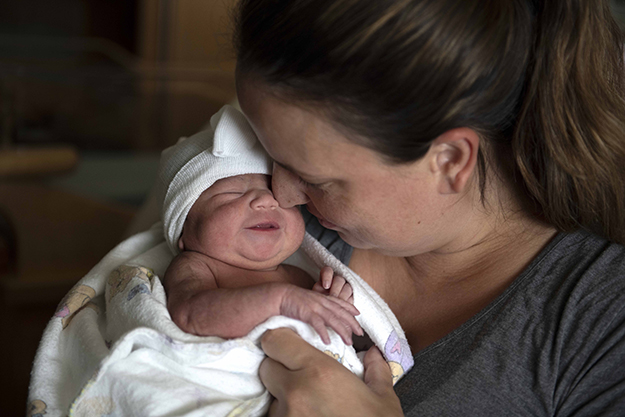The Defense Department issued a new policy this month to cover costs associated with the shipment of breast milk during permanent change of station moves.
Under the new policy, which was published in the Joint Travel Regulations, the department will reimburse up to $1,000 of expenses for service members who are breastfeeding children up to 12 months old.
Christopher Woods, the policy branch chief for the Defense Travel Management Office, said the new allowance is aimed at covering common costs that military families with young children previously paid out of pocket.
Oftentimes, service members and their families travel separately during station-to-station moves to set up households or meet mission requirements, such as training, while in route to their duty stations, Woods said.
During those periods, breastfeeding parents may be separated from their children.
"This allowance allows the breastfeeding service member to ship that milk back to the previous, permanent duty station where the dependents still are," Woods said.
Even when not separated during moves, military families often pay a hefty price to appropriately pack and store breast milk for long car rides or international flights.
"The fact is that this milk must be stored in a cold environment, and service members are having to purchase things like ice and dry ice in order to keep the milk frozen or cool," Woods said, adding that those costs can quickly add up.
The allowance covers a range of expenses associated with transporting breast milk, such as dry ice, commercial shipping and excess baggage fees. Federal law prohibits reimbursement for packaging and container expenses.
Service members seeking reimbursement must obtain authorization included on their PCS orders prior to any expenses being incurred.
The expenses must be claimed on the PCS voucher once the move is complete. All receipts associated with the claimed expenses, regardless of amount, must be submitted along with the claim.
Woods said the policy change aligns with a recent change in federal law, which requires employers to create accommodations for breastfeeding parents.
The policy also reflects Secretary of Defense Lloyd J. Austin III's priority of strengthening support for DOD personnel and family members under his "Taking Care of Our Service Members and Families" campaign.
Those efforts include key initiatives to improve the lives of service members and their families through access to quality and affordable child care and easing the burdens of relocation for military families, among other things.
"We've made taking care of people one of our major initiatives," Woods said. "This policy change supports two objectives under 'Taking Care of Our Service Members and Families' - making moves easier and supporting families."
He said once the issue of shipping breast milk was raised by the services, the travel policy office quickly coordinated with stakeholders across DOD to craft a solution.
Woods said. "And we're proud to do this to support families and service members that are undertaking challenging moves."
Recurring moves are a unique part of military life. According to Military OneSource, more than 400,000 service members change duty stations each year.
Woods said the department is constantly looking at ways to improve the experiences of service members and their families through key changes to policy governing PCS moves.
Last year, for example, the department approved a new policy to cover travel expenses associated with transporting pets during PCS moves, such as pet shipping or quarantine fees.
As of January, service members moving within the continental U.S. can be reimbursed up to $550 for a household pet and up to $2,000 for moves to or from duty stations outside of the continental U.S.
"The department's travel policy, the Joint Travel Regulations, is always evolving," Woods said. "We're adapting to challenges and different circumstances in order to better support our workforce."
He added that any change that can improve the lives of service members while meeting federal guidelines can be considered.
"We're putting everything on the table," Woods said. "We're looking to make positive changes in all of these areas that benefit our service members."




Read Comments